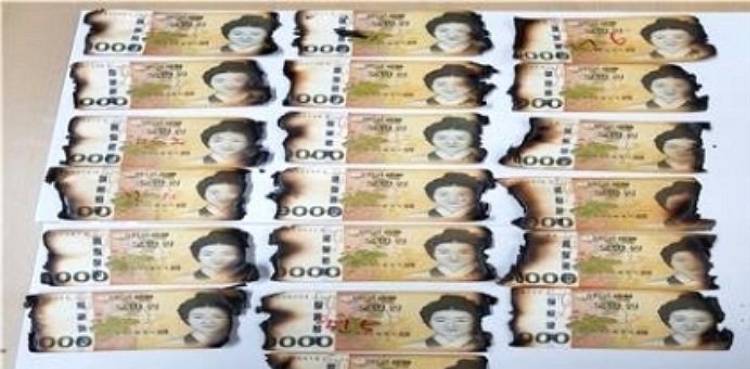
SEOUL: Worried South Koreans are putting banknotes in their microwaves and washing machines, damaging the bills in their attempts to cleanse them of the coronavirus.
The central bank said on Friday that people had exchanged three times as much burnt money in the past six months as in the same period last year, much of it thought to be from botched efforts to disinfect bills.
A Bank of Korea official told Reuters that the amount of money returned to the bank after being burnt between January and June had risen to 1.32 billion won ($1.1 billion) from 480 million ($400 million) in the same period last year.
“There was a considerable amount of bills being burnt in the microwave ovens in the first half of this year,” the official said, referring to efforts to prevent the coronavirus.
In a statement, the bank said overall a total of 2.69 trillion won worth of damaged notes and coins were destroyed and of that it exchanged 6.5 billion won worth in the first half of 2020.
Besides using microwaves or ovens to heat the bills, some people also put them in their washing machines, the bank said.
In one example given by the bank, a person surnamed Um came in to redeem at least 35.5 million won ($30,000) in notes damaged after he had put them in the washing machine.
Um only recovered 22.9 million won, losing at least 35% of the original money, which he had received as condolence donations for funeral expenses for a family member, the BOK said.
Another case involved a person surnamed Kim, who put 5.2 million won in the microwave to sterilise the money against COVID-19. But the damage was limited so Kim was able to redeem most of the money.
In March, the BOK said it was quarantining bank notes for two weeks to remove any traces of the coronavirus and even burning some as part of efforts to stem the outbreak.
The post South Koreans are putting banknotes in microwaves and washing machines appeared first on ARY NEWS.
Comments